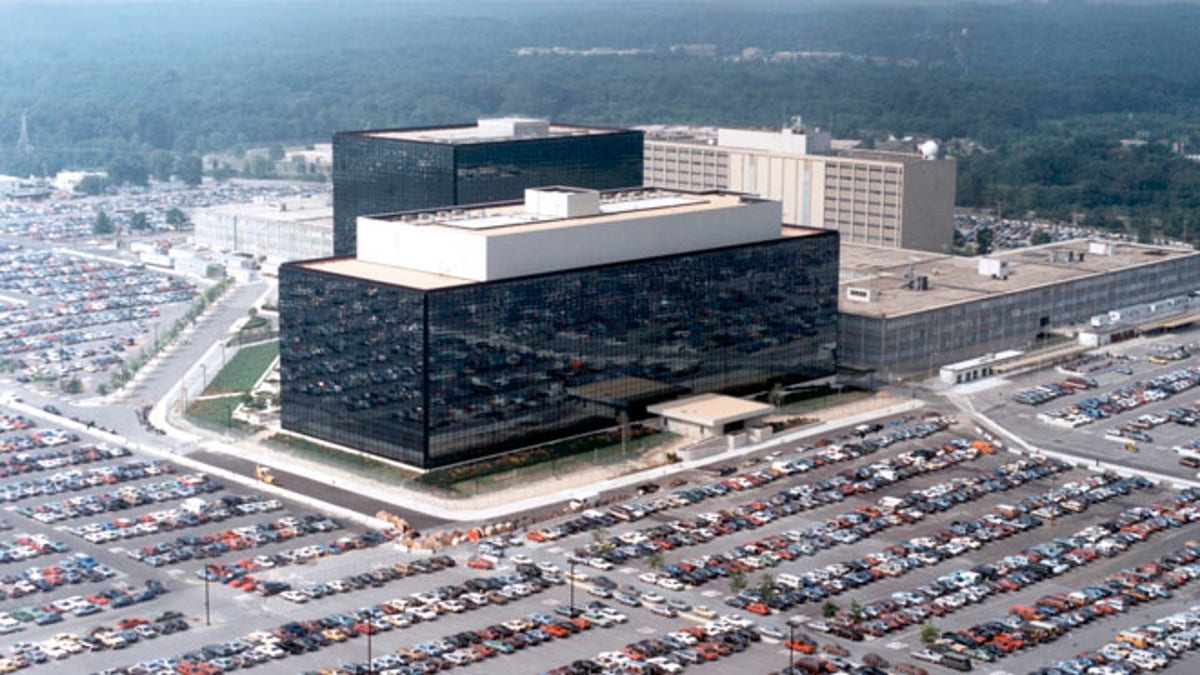
An undated aerial handout photo shows the National Security Agency (NSA) headquarters building in Fort Meade, Maryland. (Reuters)
The National Security Agency’s massive and now-exposed data gathering program on Americans’ telephone use picks up less than 30 percent of calls, according to two published newspaper reports.
The reports say the agency’s anti-terrorism, data-gathering project has been unable to adapt to the country’s rapid and large-scale transition from landlines to cell phones. And NSA data collection has declined significantly since the program started in 2006, when it collected data on nearly all U.S. calls, anonymous officials and sources told The Washington Post and The Wall Street Journal.
The reports raise even more questions about the program since it was wholly exposed last summer by then-NSA contractor Edward Snowden, whose leaks to the news media have since fueled a passionate and ongoing public debate about privacy and national security.
The impact of the reports remains unclear in part because the NSA and the Office of the Director of National Intelligence have declined to comment on the veracity of the sources’ information.
However, national security officials and other supporters of the meta-data collection program who say it is needed to thwart would-be terror attacks could argue the news reports show the program is less invasive on Americans than portrayed. And critics could use the reports to further demand an end to the program, considering it misses 70 to 80 percent of calls.
In January, President Obama announced a series of steps that would end the NSA’s ability to store the phone data collected from millions of Americans.
He did not say the program would end and called on Attorney General Eric Holder and members of the intelligence community to recommend a transfer point for the data by March 28 -- when the collection program comes up for reauthorization.
Civil liberties groups said they were not reassured by the reports, saying the government still intends to gather phone records from all American users.
"To accept their legal reasoning is to accept that they will eventually collect everything, even if they're not doing so already," said Jameel Jaffer, deputy legal director for the American Civil Liberties Union.
Verizon and AT&T said last December that they would provide figures this year on data requested by the government in law enforcement and intelligence investigations. But the Journal reported last year that several major cellphone entities including Verizon Wireless and T-Mobile were not part of the NSA's bulk metadata collection. It is not clear why cellphone providers would not be covered by the NSA legal authority.
Intelligence officials are already moving to alter the structure of the phone-surveillance program to conform to changes Obama ordered.
On Friday, Office of the Director of National Intelligence, or DNI, posted a government website appeal to private companies to develop ways for the government to continue its phone record searches without storing a massive inventory of phone data. The posting, on FedBizOpps.gov, said the DNI is "investigating whether existing commercially available capabilities can provide for a new approach to the government's telephony metadata collection program."
The Associated Press reported last month that the DNI is already funding five research teams across the country in an effort to develop an encrypted search technique that could be used by the NSA to securely scan phone databanks held elsewhere.
In a related development, the secretive Foreign Intelligence Surveillance Court in Washington on Thursday authorized two major changes in the phone-collection program that Obama committed to in January. The court agreed to require judicial approval for each internal NSA search of telephone data for terrorist connections and it will narrow the numbers of American phone users whose records can be scanned during each search, the DNI reported.
In the first instance, the NSA now must provide judges with "reasonable, articulable suspicion" for each search of phone data for terrorist connections. That hurdle can be lifted during national emergencies. And the court ruling now scales back the NSA's use of a "three-hop" system in its searches — allowing the agency to scan the records of those in phone contact with a terror suspect and a second wave of people in touch with the first group, but no longer allowing searches of a third wave of phone contacts.
Chief Justice John Roberts on Friday named two new judges to the secret court. Roberts said that U.S. District Judges James E. Boasberg and Richard C. Tallman joined the court on Jan. 27. Boasberg was appointed by Obama, Tallman by President Bill Clinton. Their appointment will likely do little to dampen criticism that the majority of FISA judges picked by Roberts are Republicans.
The Associated Press contributed to this report.




